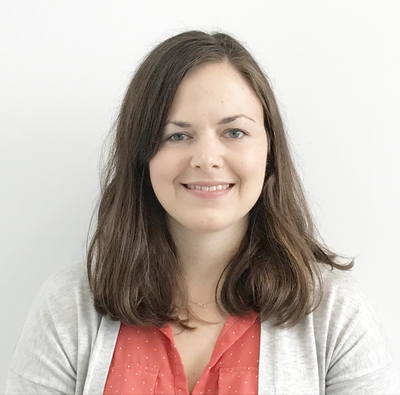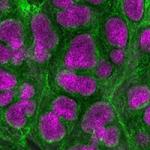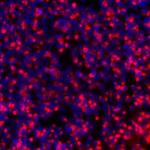
Terren K. Niethamer, Ph.D.
Stadtman Investigator
Cancer and Developmental Biology Laboratory
NCI/CCR
Research Topics
My original inspiration to study endothelial cells came from my interest in lung alveolar structure and its connection to function. I am fascinated by the beautiful three-dimensional structure of the gas exchange interface in the lung, in which the large, flat alveolar type 1 epithelial cell overlays the capillary network lined with endothelium. How do endothelial cells contribute to development and regeneration of this complex structure? This question is essential to the pursuit of improved regenerative therapies for patients with lung disease.
Single-cell genomics has revolutionized our understanding of the heterogeneity of lung cell types during development, maintenance of homeostasis and disease. These experiments have identified novel cell types and provided great insight into the mechanisms of lung repair. In addition, analysis of the epigenome using the assay for transposase-accessible chromatin with high-throughput sequencing (ATAC-seq) and single-cell ATAC-seq have provided unprecedented opportunities to understand the factors that define cell fates at the single-cell level. To develop much-needed regenerative therapies in the lung, however, it will be essential to understand not only how cell fates are defined, but also how three-dimensional tissue architecture is formed.
My research program integrates genomic techniques, ex vivo approaches in mouse and human primary cells and tissue, and mouse genetics to develop a fundamental understanding of how endothelial cells communicate with other cell types in the lung alveolar niche to drive development, maintain homeostasis and effect repair after injury. I am particularly interested in the role of endothelial signaling in tissue morphogenesis. Our work will improve understanding of mechanisms of cellular self-organization and tissue morphogenesis in lung development and regeneration by:
- Expanding our knowledge of how lung endothelial cell fates are established and maintained
- Determining how endothelial cell signaling affects alveolar development and repair
- Defining the impact of endothelial cell signaling on alveolar tissue organization
The long-term goal of my group is to benefit lung and vascular biology, as well as society, by using the scientific knowledge we gain to improve therapies for human lung and vascular disease.
Biography
My interest in the connection between form and function has led me to pursue research questions in several different disciplines, including synthetic chemistry, glycan biosynthesis, craniofacial morphogenesis, and lung regeneration. Throughout my research career, I have been inspired by both the thrill of scientific discovery and the knowledge that my work can tangibly benefit patients. I obtained a Ph.D. in Biomedical Sciences from the University of California, San Francisco, where I worked in the laboratory of Dr. Jeffrey Bush and received support from an NSF Graduate Research Fellowship and an F31 predoctoral fellowship. My graduate work focused on the role of ephrin-B1 signaling in cell self-organization, tissue morphogenesis, and congenital disease, expanding our understanding of the role of Eph/ephrin signaling in cell behavior. This ignited my enthusiasm for studying signaling mechanisms in cell behavior and morphogenesis during development and regeneration.
I trained as a postdoctoral fellow in the laboratory of Dr. Edward Morrisey at the University of Pennsylvania, where I defined the cellular composition of the pulmonary capillary endothelium and began to elucidate the functional role of endothelial heterogeneity in lung regeneration, a question that I continue to pursue today. I identified an essential role for the transcription factor ATF3 in lung regeneration and demonstrated that repair of the capillary vascular network is key to restoring the structural integrity of the lung alveolus. I received several presentation awards for this work and successfully competed for NIH funding, including an F32 postdoctoral fellowship and a K99 career development award. My current research builds on my postdoctoral work to determine the role of endothelial cell signaling in development and regeneration of the lung alveolus and its gas exchange function.
Related Scientific Focus Areas



Molecular Biology and Biochemistry
View additional Principal Investigators in Molecular Biology and Biochemistry

This page was last updated on Monday, June 9, 2025